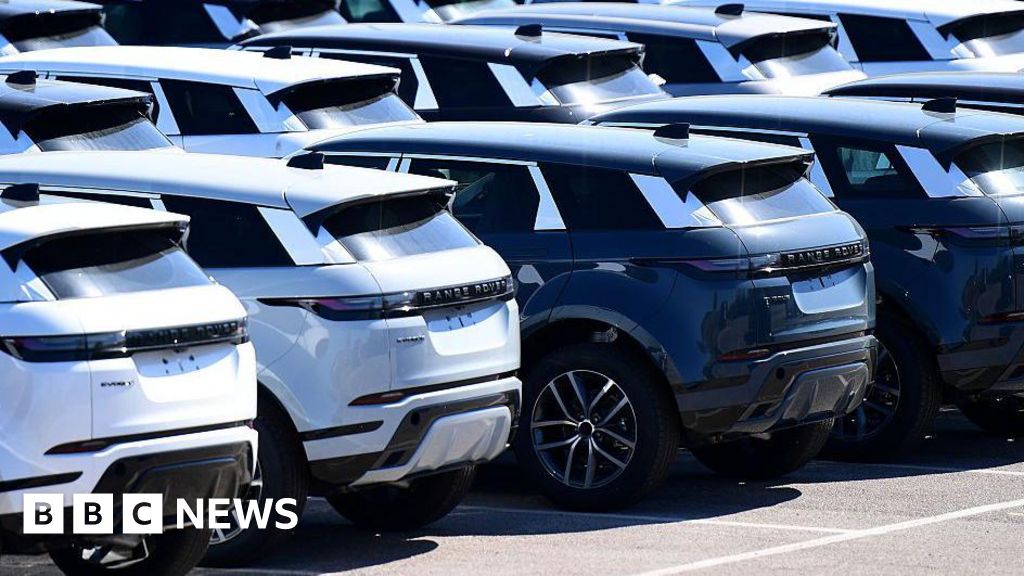Jaguar Land Rover restarts some IT systems after cyber-attack

Jaguar Land Rover (JLR) says it has begun a “phased restart” of its operations with parts of its IT system back up and running.
The company said it was “working to clear a backlog of payments” to suppliers as it now had increased its processing capacity for invoicing.
The carmaker’s production lines have been suspended since a cyber-attack in August forced the company to shut down its IT networks. Its factories remain closed until next month at the earliest.
The prime minister said the government was “working 24/7” on a support package for suppliers amid growing concerns that some, mostly small businesses, could go bust due to the prolonged shutdown of operations.
Sir Keir Starmer said the situation faced by suppliers was “urgent”, but admitted no support plan had yet been finalised.
“I am acutely aware of the urgency of the situation and the difficulties that many of these companies are inevitably finding themselves, through no fault of course of their own,” he told the BBC.
Various ideas have been put forward over how the government could step in to support suppliers of JLR until car production is restarted.
The company said on Thursday that its recovery programme was “firmly under way” and that its global parts logistics centre, which supplies spare parts that service customers’ vehicles, “returning to full operations”.
“The financial system we use to process the wholesales of vehicles has been brought back online and we are able to sell and register vehicles for our clients faster, delivering important cash flow,” the company added.
The carmaker said it recognised that the situation was a “difficult time for all connected with JLR”, with no new cars being built and staff being sent home from work.
The manufacturer, which is owned by India’s Tata Motors, typically builds about 1,000 cars a day at its three factories in Solihull and Wolverhampton in West Midlands, and Halewood in Merseyside.
Workers have been told to stay home since 1 September, with no firm return date.
About 30,000 people are directly employed at the company’s plants with about 100,000 working for firms in the supply chain. Some of these firms supply parts exclusively to JLR, while others sell components to other carmakers as well.
Calls have been made to support suppliers, whose businesses are under threat as a result of the knock-on impact of the cyber attack.
One idea being explored is the government buying the component parts the suppliers build, with the aim of keeping the companies in JLR’s supply chain in business until production lines are up and running again.
However, firms have told the BBC they are sceptical about the success of such a scheme.
The government “simply don’t understand the complexity of what they’re dealing with”, said one supplier.
“We don’t need promises, we need help.”
The prime minister said the business secretary, Peter Kyle, was “working 24/7 with those businesses to come up with a viable way of solving this and supporting them in this crucial period”.
Meanwhile, Industry Minister Chris McDonald said the move towards restarting production was “welcome progress towards JLR’s recovery” and a step in supporting cash flow across JLR’s supply chains, adding that the government would continue its dialogue with the beleaguered firm.
Unions have called for a Covid-style furlough scheme, but ministers have ruled this out given its likely cost, sources have told the BBC.
Following a private meeting between JLR’s suppliers and the Business and Trade Select Committee on Thursday afternoon, chair of the committee Liam Byrne MP has written to Chancellor Rachel Reeves warning some firms had only “weeks left” before the financial impact seriously disrupts elements of the car supply chain.
While the purchase and stockpiling of car parts by the government is an option on the table, this would present considerable logistical challenges.
JLR’s manufacturing process relies on the right part arriving at the right place, at the right time.
Another option being considered is government-backed loans to suppliers, though this is understood to be unpopular with suppliers.
[title_words_as_hashtags




